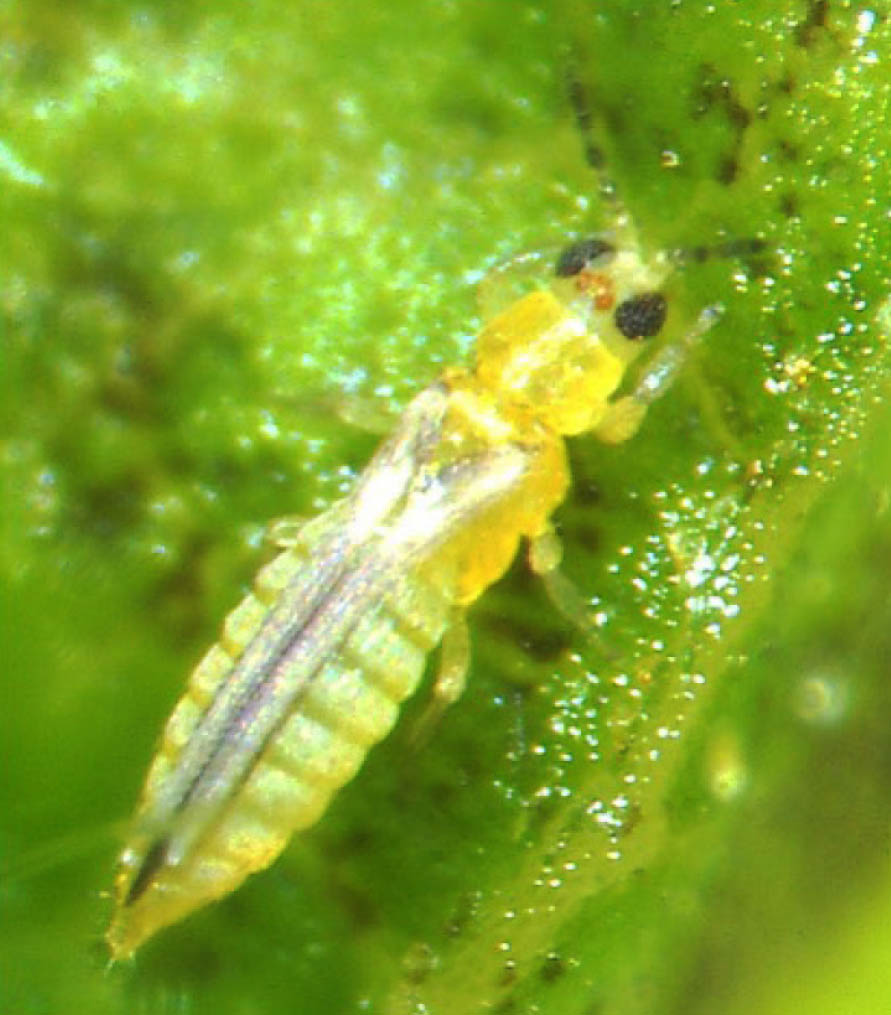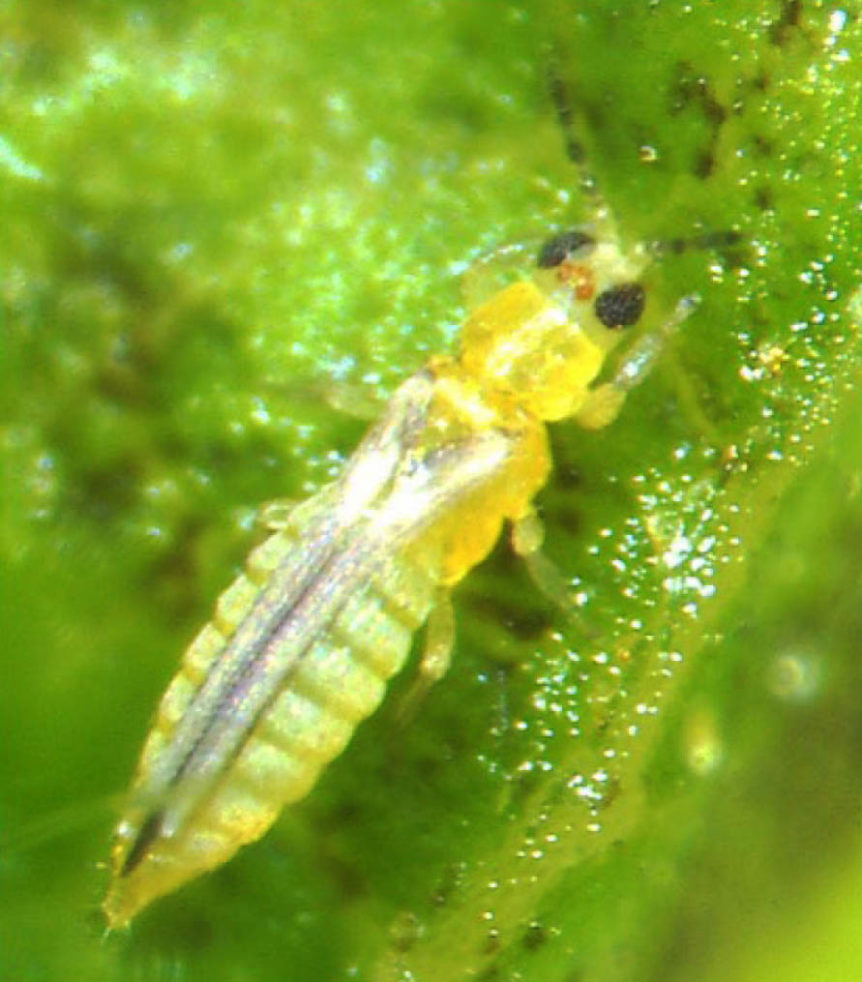
By Clint Thompson
One year ago, Ash Sial, University of Georgia (UGA) entomologist, reported that chilli thrips were the most serious emerging issue impacting the state’s blueberry crop. Not much has changed in a year’s time, unfortunately.
“We are really scared of chilli thrips based on what we hear from Florida and blueberry grower experiences. What we hear from Florida is that they have to make anywhere from 9 to 12 applications in one season in worst case scenarios to control chilli thrips,” Sial said. “If you don’t control them, they can actually kill the bushes. They can build high populations. We are really concerned about it.”
Chilli thrips were first confirmed in Georgia three years ago and have been observed in multiple counties since then. Not much is known about the pest and its potential impact in Georgia. Sial and a fellow team of scientists are hoping to change that with research funding from the U.S. Department of Agriculture (USDA).
“They can thrive here. That’s what we are scared about. To deal with that we put together a national team of researchers. We submitted a research proposal to USDA NIFA to get funding to do basic work and understand the biology, ecology parameters will work in this area. That’ll help us prepare better for the impact,” said Sial, who hopes to get funded this year.
Chilli thrips feed on the new growth of tissues, new foliage and cause browning symptoms in the tissue. It can lead to death of the bushes in extreme cases.










